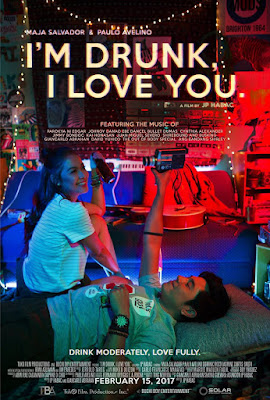ANATOMIYA NG KORUPSYON (Dennis Marasigan)
Corruption is a term Filipinos are very much familiar with. Hailed as one of the most corrupt countries in Asia, and even the world, the Philippines has a very rich historical documentation of tyranny, theft and yes, red tape. So when a filmmaker like Dennis Marasigan, who's already proven he can make a compelling and realistic political film via "Vox Populi," decides to adapt Malou Jacob's play to the screen, he's more than welcome.
ANATOMIYA NG KORUPSYON is set during the Marcos era, when corruption in the country is as its peak (or I could be mistaken or inaccurate, depending on who you ask, say Imelda Marcos); at first I didn't notice the period in which the story takes place. My friends readily saw the Marcos picture hanging by the office (the setting is in a Family Court). For me, the black vintage telephone and the trendy dresses worn by Che Ramos and Bea Garcia (who play office clerks) gave the milieu away.
At the center of the story is Cely (Maricar Reyes), an idealistic young lawyer hired to replace a previous hearing officer in an unidentified family court. Brewing with confidence, enthusiasm, and a good command of her morality, she goes knee deep into battle, later finding out that her resistance is futile.
The battle is with corruption. The enemies are her coworkers, her immediate superior Atty. Ric (Sid Lucero), and even the judge (Ricky Davao) who doesn't possess a shed of decency. The conflict arises when Cely refuses to be a team player. Of course, she has to suffer the consequences because she threatens the status quo.
Nevertheless, Marasigan, who knows how to command good satire presents the story in a light, sometimes humorous perspective, where everyone can laugh at the characters' ordeals and misfortunes, yet never forgetting the underscored important social issues.
True to its title, ANATOMIYA NG KORUPSIYON enumerates and dissects corruption in its many forms, from what brownouts do to public service to the stenographer benefiting from red tape because she gets paid per page of what she types, up to the judge who is stated to have been receiving the highest amount of money because of the level of his needs/luxuries.
Marasigan channels his characters' thoughts and feelings via close-ups, and that claustrophobic feeling inside the elevator where Cely was sandwiched between employees echoes the final shot from Marasigan's "Vox Populi," where Irma Adlawan was also trapped inside a crowded van.
Maricar Reyes is praiseworthy as Cely. Her unwavering desire to do good is almost heartbreaking; her conviction when needed is firm and compelling. When she gets blackmailed and double crossed you feel genuine empathy.
And in textbook cinematic fashion, as we have seen countless times in various genres, if you cannot take the hero apart on his/her own, you go after the family. This reminded me that Cely is a human being that even with her noblest of intentions, she is also capable of making the wrong choices.
I liked the film because of its honesty, and the universality of its message, which still rings true today. Corruption is systemic, and one person cannot take it on alone.
RATING: 5/5


Comments
Post a Comment